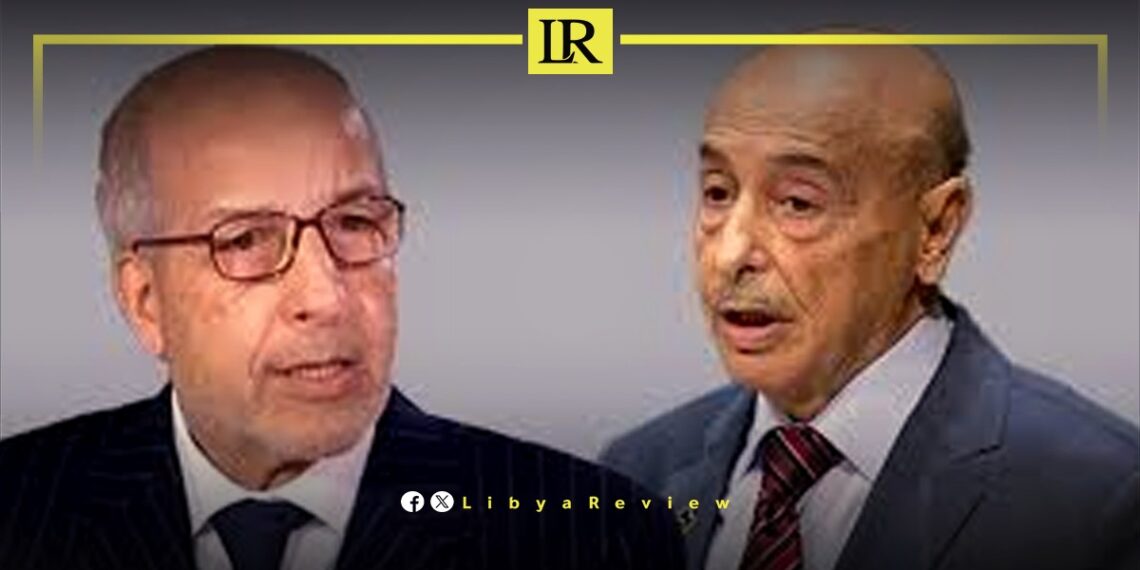Libyan House of Representatives Speaker Ageela Saleh has expressed strong concerns over the Presidential Council’s recent decision to change the board of the Central Bank of Libya, describing it as a dangerous move.
Saleh warned that this action could lead to the freezing of Libyan assets and the collapse of the Libyan dinar.
During a session for the Parliament, on Monday, Saleh reiterated that Al-Siddiq Al-Kabeer remains the Governor of the Central Bank of Libya, with Marai Al-Barassi serving as his deputy, until an agreement is reached between the legislative bodies on sovereign positions.
He firmly rejected the Presidential Council’s decision, stating that the council’s term has expired, and that their action regarding the Central Bank is unacceptable.
Saleh emphasized that Al-Siddiq Al-Kabeer is still the legitimate Governor of the Central Bank based on the Parliament’s recent decision.
He clarified that the House of Representatives did not cancel the political agreement during its last session.
Saleh concluded by stressing the need for a unified executive authority in Libya that can lead the country towards holding elections.
On Sunday, Libya’s Presidential Council took a decisive step by unanimously removing Central Bank Governor Al-Siddiq Al-Kabir and appointing new leadership for the Central Bank of Libya.
This significant decision aims to protect the nation’s resources and ensure financial and economic stability amid ongoing challenges, according to a statement by the Presidential Council.
The Council emphasized that this leadership change is essential for enhancing governance and institutional stability in Libya. The move is intended to reinforce the Central Bank’s ability to manage the country’s financial affairs effectively, ensuring that the nation’s economic foundation remains strong. The Council also assured international partners of its commitment to maintaining stability in Libya’s financial sector.
Mohamed Al-Shukri has been appointed as the new Governor of the Central Bank, according to the Council’s Decision No. 19 of 2024. This appointment is seen as a temporary measure until a permanent governor is agreed upon, in line with the political accords reached during the UN-facilitated Libyan dialogue, supported by key international players.
The decision has sparked controversy, particularly given a previous decree by the House of Representatives, which had halted Al-Shukri’s appointment and maintained Al-Siddiq Al-Kabir in his role, with Marai Al-Barassi as his deputy. The Parliament argued that the delay in Al-Shukri assuming his duties justified the continuation of the existing leadership.


